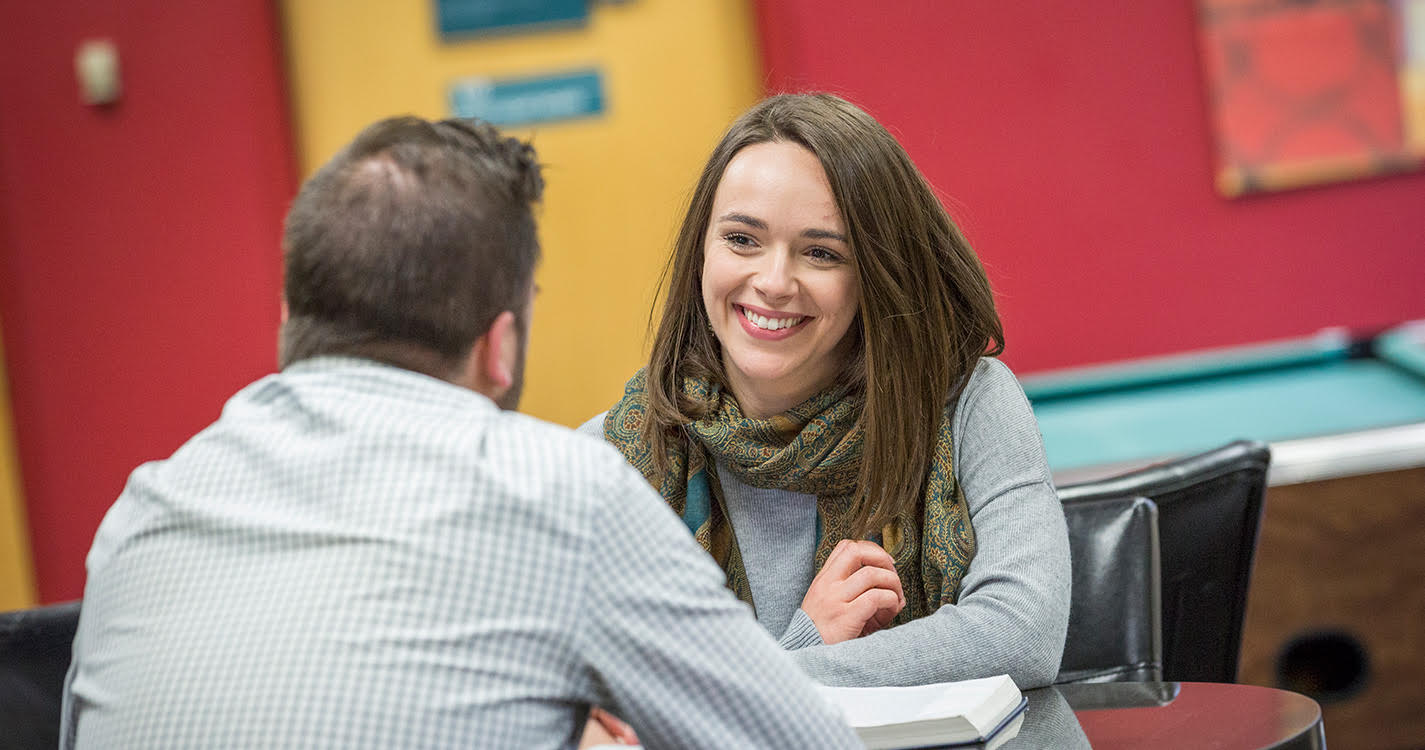Megan Hinzdel JD’18 will soon graduate from Willamette University’s College of Law with a diverse community of friends and connections, but she started out like everyone else — a new student at a new school.
Because the situation reminded her of how grateful she was for support at another pivotal point in her life, she threw herself into providing a safe, welcoming community at Willamette Law.
“When I came out, a big part of why I felt safe and comfortable was because of the people I had around me and the queer community,” she says. “But when you’re in a new place and at a new school, you don’t automatically have that safety.”
Hinzdel, who identifies as queer, wasn’t involved in queer organizations as an undergraduate at Whitworth College in Spokane. But when she enrolled at Willamette College of Law, she joined the LGBT student organization OUTLaw.
Law students tend to focus so hard on academics, Hinzdel says, “We sometimes forget to value what makes us who we are.”
Over the next three years, Hinzdel became president of OUTlaw, a secretary for the LGBTQ Bar Association of Oregon (OGALLA) and editor for a new social justice and equity journal.
Some of OUTLaw’s recent achievements include motivating the law school to install gender-neutral bathrooms and helping set up a task force of law administrators, professors and students to become more aware of and prevent discrimination.
Hinzdel’s also proud of her work as executive editor of the law school’s Social Justice and Equity Law Journal. The first of its kind in Oregon, the journal published its first edition Jan. 29.
“I am so glad we got to highlight issues I really care about, such as gender identity and race bias in the criminal justice system,” she says. “We published important articles.”
In addition to these efforts, Hinzdel found time to build her resume. For one summer internship with the Northwest Justice Project in Longview, Washington, she worked with a family law attorney to help low-income residents with a broad number of legal issues, including getting protection orders for domestic violence victims.
She also interned at SAIF Corporation, Oregon's not-for-profit workers' compensation insurance company. Depending her bar exam passage in July, she will continue to work there as a trial attorney.
Hinzdel wanted to work at SAIF because she admired the organization’s strong diversity and inclusion policy. Most of all, she felt she could be herself.
“It’s really important for me to be open anywhere I work,” she says. “If I’m not comfortable talking about my wife or the experiences I’ve had, then some other people might not get a chance to also identify and share their own experiences.”

